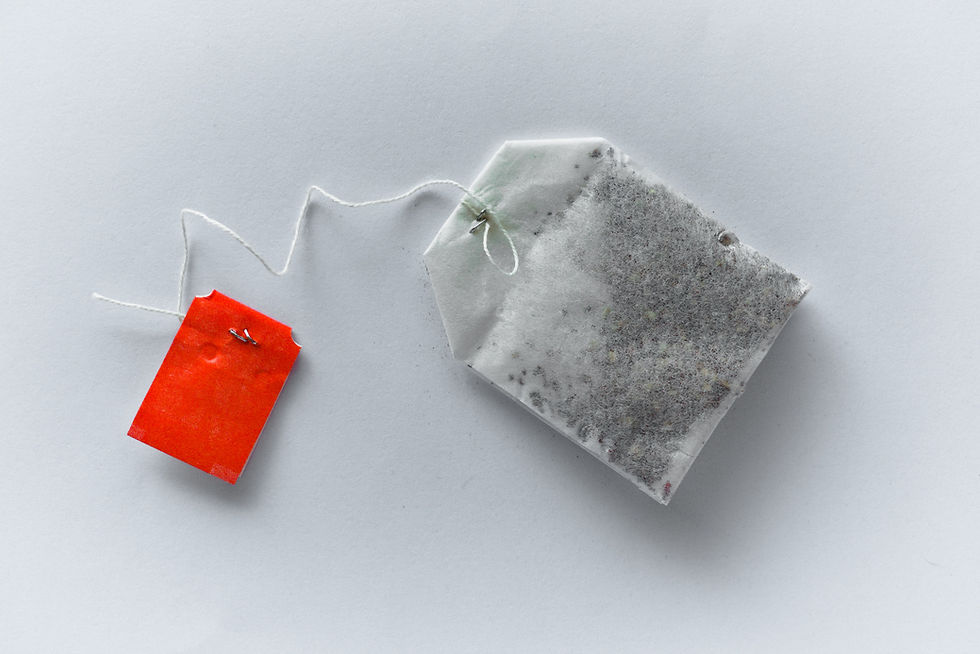Invented by a missconcept, tea bags! 🍵
- HappyNass

- Sep 26, 2023
- 1 min read

In the early 1900s, Thomas Sullivan was a tea merchant in New York City. He would send samples of his loose tea leaves to potential customers in small silk bags. These silk bags were intended to hold the tea for sampling purposes, allowing customers to see and smell the tea's quality before purchasing.
However, some of Sullivan's customers misunderstood the purpose of these bags. Instead of opening them to transfer the loose tea leaves into a teapot, they decided to steep the entire bag in hot water. Sullivan noticed this unintended use when he received feedback from customers who found the tea bags convenient for steeping.
Recognizing the potential of this convenient method for brewing tea, Sullivan began producing tea bags made from gauze, a more affordable material than silk. These gauze tea bags became popular because they simplified the process of making tea. The bags contained pre-measured portions of tea leaves, eliminating the need for measuring loose tea.
In the years that followed, the concept of the tea bag evolved, and manufacturers began producing tea bags in various shapes and sizes, including the now-familiar rectangular and round shapes.
Over time, improvements were made in the materials used for the tea bags, including the development of paper tea bags that are still widely used today.
The invention of the tea bag revolutionized the way tea is prepared and consumed, making the process more convenient and accessible to a broader audience. Tea bags have become a common and convenient way to enjoy tea worldwide.








Comments